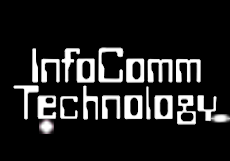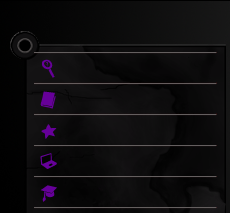Diploma in
Financial Informatics (N81)
Introduction |
Career Prospects |
Further Studies |
Entry Requirements |
Course Structure |
Contact Us |
Giving you that something xtra
- Hybrid course that gives students a strong IT foundation with business knowledge in the dynamic banking& finance industry
- Provides an in-depth understanding of how to use enterprise technology, business process representation and integration to improve business competitiveness in the finance sector
- A unique curriculum that leverages on the expertise of lecturers from the schools of InfoComm Technology and Business & Accountancy
- Endorsement by the InfoComm Development Authority of Singapore
About the Diploma
Do you want to help banks and financial institutions make better decisions by using the information within their IT systems? The Diploma in Financial Informatics (FI), a hybrid course that gives a strong IT foundation with business knowledge will help you do just that.
Singapore is a leading financial centre, home to more than 600 multinational financial institutions. IT professionals need to have knowledge of the banking industry to help banks run smoothly.
FI equips you with knowledge and skills in IT, information systems development, business process management and domain knowledge in the banking and finance industry.
You will develop the expertise to analyse and manage financial data as well as business processes of enterprise systems so as to improve business competitiveness within the financial sector. Be exposed to SAP, the world's market leader in enterprise resource planning software, to demonstrate how basic processes are represented and integrated in a real world business setting.
You will have the opportunity to hone your skills and knowledge in real-life situations during a five-month internship in your final year. FI alsoprepares you for prestigious industry certifications, such as SAP's Best Practices Enterprise Resource Planning.
Career Prospects
Employers value IT graduates who have business knowledge and are trained in business process methodology, infocomm products and industry applications such as ERP (a financial management software). You will be able to harness infocomm for product, service and process innovation in the finance sector. You will be able to anticipate and meet customers’ increasing demand.
You will be trained to perform the role of a business analyst and given a head start in the banking & finance industry. As such, you will be able to meet the increasing demand for such a new breed of business analysts in the banking and financial institutions, small and medium enterprises, multinational corporations and the public sector.
You can even further your career after gaining project implementation experience and relevant industry certification to become members of Best Practice project teams, application consultants, solution architects, pre-sales or channel managers.
Further Studies
With your Diploma in Financial Informatics, you will enjoy advanced standing at local and overseas universities either in an IT or a business-related degree. The universities include the National University of Singapore, Nanyang Technological University, Singapore Management University, University of New South Wales, University of Melbourne, Monash University and most United Kingdom and United States universities.
Entry Requirements
To be eligible for consideration, candidates must have the following GCE 'O' Level examination (or equivalent) results and fulfil the aggregate computation requirements.
Subject |
‘O’ Level Grade |
|
1 – 7 |
|
1 – 6 |
|
1 – 6 |
The aggregate computation for selection is based on grades obtained for English, Mathematics, Science (Grade 1-9) or Design & Technology (Grade 1-9) or Computer Studies (Grade 1-9) and two other subjects.
* Candidates must attain the required grade for English as a first language.
Candidates with severe vision deficiency should not apply for the course.
Course Structure
First-Year Modules |
Second-Year Modules |
Final-Year Modules |
Level 1.1
Level 1.2 |
Level 2.1
Level 2.2 |
Level 3.1
Level 3.2 |
^ Interdisciplinary Studies (IS) modules at Ngee Ann help students become more versatile and competitive by expanding their knowledge and skills beyond their core disciplines. Areas covered include communication, entrepreneurship, lifeskills, media and the arts, and science and technology.
¹ The modules in Level 3.1 and 3.2 are offered on an interchangeable basis.
Prescribed Modules / Electives
From the second semester, students will automatically enroll in prescribed electives in the area of Banking & Finance. You will also be allowed to take elective modules from other diploma courses offered by the School of ICT. In addition, you will take several Interdisciplinary Studies modules, and undergo an internship project in your final year.
Banking & Finance Prescribed Modules |
Electives |
| · Economics · Financial Markets & Services · Financial Planning · Financial Management · Banking & Financial Applications · Investments · IT Outsourcing · Principles of Marketing · Customer Relationship Management |
· Business Intelligence · Systems Security · Wireless Technology · eCommerce Application Development |

Related Courses • Information Technology (N54) |
Contact Us Ngee Ann Polytechnic (admission to full-time courses) |
School of InfoComm Technology Mr Chang Bin Haw |
Introduction |
Career Prospects |
Further Studies |
Entry Requirements |
Course Structure |
Contact Us |








